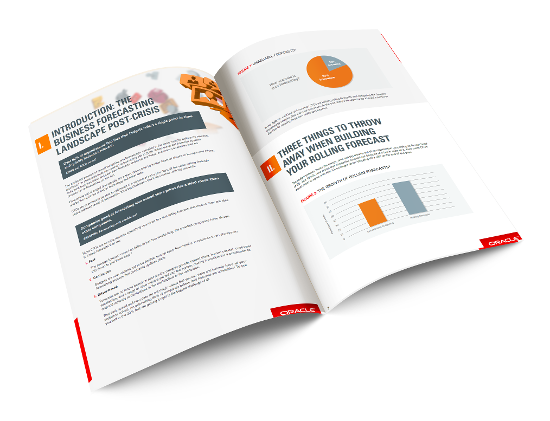Rolling forecasts present an appealing alternative to the annual budget process (assuming the benefits outweigh the challenges for your organization).
While traditional budgeting methods can often cause up to four budget recompilations every year — taking valuable time away from your finance staff — rolling forecasts ensure time isn’t wasted on inaccurate assumptions. Rather, rolling forecasts enable you to make adjustments based on corporate goals and changes within the marketplace. Always being able to look ahead will lend your organization flexibility that just isn’t attainable with the traditional annual budget.
So, how can you ensure success when you start using rolling forecasts?

Do Retire Your Traditional Forecast Model
In business, it can be really hard to make changes and leave old ways behind. To find success with rolling forecasts, your whole team needs to adopt the practice and change their mindset. When an organization maintains multiple models for too long, forecast owners tend to rely on the older, more comfortable way and ignore the new model.
The best thing you can do is set a deadline to transition, and then involve key players in important implementation tasks to gain commitment and prepare your finance office.
Do Base Forecasts on 12 Months or More
Though you’re moving away from the annual model, you still want to ensure you’re forecasting over a long enough period. When your forecasts go past the subsequent fiscal year, business leaders are given more insight into the future. Forecasts periods usually last at least 12 months, but they can also go up to 18, 24, 26, or more.
Do Focus Your Forecasts on Top Key Performance Indicators (KPIs)
If you haven’t been able to convince your organization’s leaders that rolling forecasts are a better method for planning, it’s probably because they don’t fully understand them. Many managers believe that taking on rolling forecasts means completing an entire budget several times a year. Taking every detail from your organization and compiling it into one forecast isn’t the right approach. Instead, you should look at your top KPIs that enable you to see the bigger picture, rather than obsessing over the details.
Do Standardize Your Methods and Rules
With rolling forecasts, it’s important to work smart. One of the keys to saving time and ensuring data consistency is to set rules for your salespeople in classifying opportunities. Define the stages of the cycle, and set probabilities of closure that are based on facts, rather than opinions. This will help with accuracy in your forecasting.
Don’t Lose Sight of the Point — To Influence, Not Predict
Forecasts — even rolling forecasts — can’t make you clairvoyant. “The only certainty about a forecast is that it will be wrong,” write Jeremy Hope and Steve Player in Beyond Performance Management. “The purpose of a forecast is not so much to provide an accurate view of the future but to provide some insights about how strategic options and future events will combine to produce the financial outcomes that you want.”
Don’t Link Forecasts to Targets or Rewards
This might be a hard pill to swallow for your leadership team, who never want to hear bad news. However, when you take target setting, measurement, and rewards out of forecasting — you end up with better results. Your accuracy will improve if you have a more realistic view of the future, rather than adjusting your forecast so it reflects the agreed upon budget.
Don’t Let Someone Change Your Forecasts Without Consulting You
If higher-level management has a problem with your forecast, do not simply allow them to change it. However, it is fine for them to challenge the predictions and the assumptions on which the forecast is based. Allowing changes to be made to your forecasts, no questions asked, will eliminate all credibility.
Download your complimentary copy of The No-Nonsense Guide to Rolling Forecasts to learn more!






